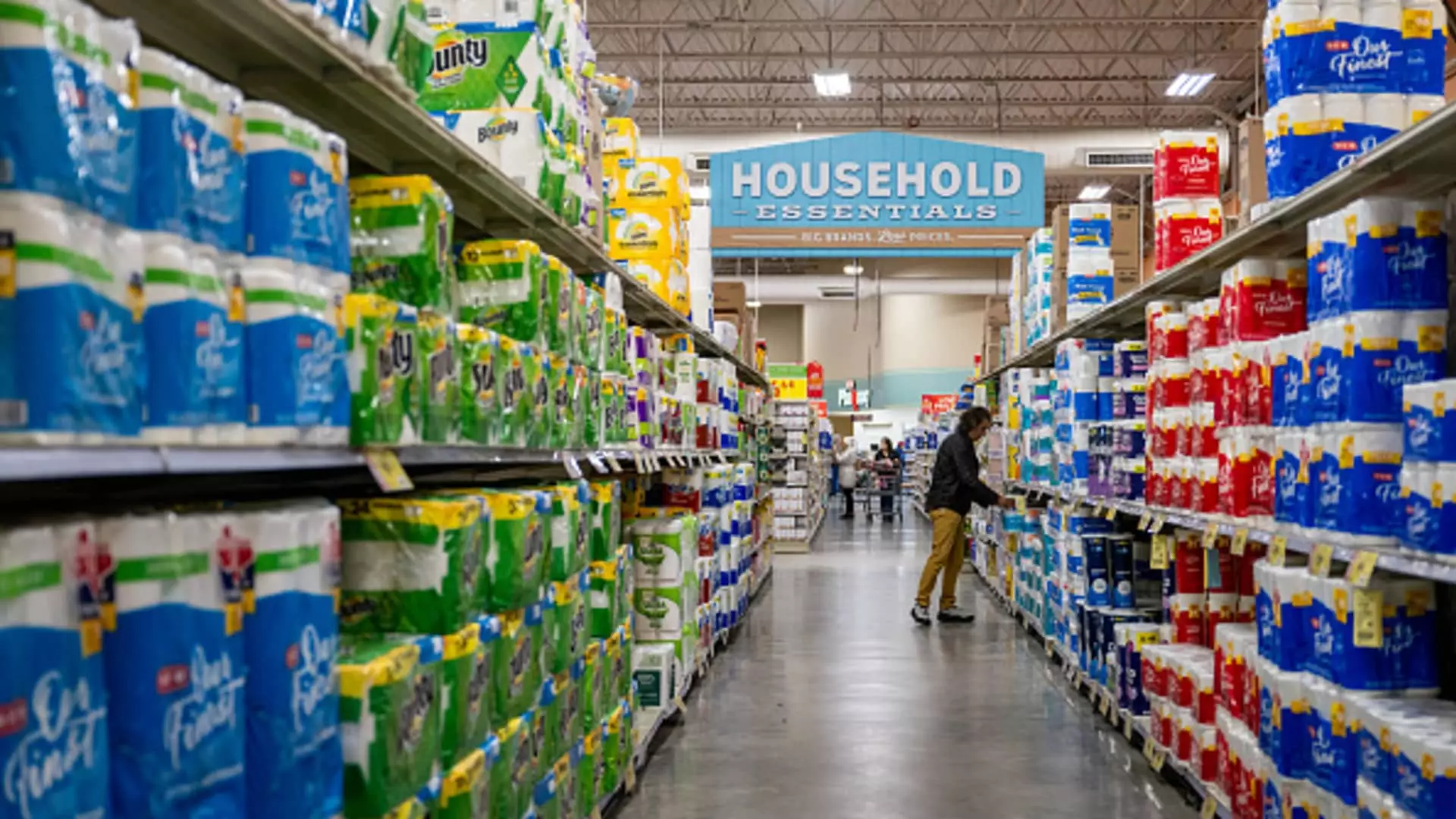The American public is facing imminent price increases on some of the most essential products in our daily lives. As the Trump administration rolls out its new tariffs targeting goods imported from over 180 countries, consumers will likely feel the sting at checkout. The intention behind these tariffs is clear: bring jobs back to America and reinvigorate the economy. However, the execution – reminiscent of a blunt instrument rather than a finely-tuned tool – ignores a fundamental truth about global trade and our interconnected economy: not all ingredients can be sourced domestically.
The Consumer Brands Association (CBA), a lobby group representing giants like Procter & Gamble and Coca-Cola, has raised eyebrows with warnings about the implications of these tariffs. Its vice president, Tom Madrecki, argues that while the administration’s “America First” policy may have noble goals, a lack of nuance could hamper domestic manufacturers forced to rely on foreign products. It’s a classic case of patriotic zeal potentially backfiring, as tariffs raise costs and reduce access to goods that millions of Americans rely on.
The Cost of Coffee: From Beans to Bank Accounts
Coffee lovers are in for a rude awakening. As tariffs are implemented, the cost of importing coffee—a cherished staple in the American diet—will inevitably rise. The CBA points out that due to geographical limitations, the U.S. cannot cultivate its own supply of coffee, cocoa, or bananas in sufficient quantities. In fact, Guatemala alone accounts for nearly 40% of U.S. banana imports. These tariffs are poised to tack on a hefty additional cost to these goods, leaving consumers with one less reason to rejoice during their morning rituals.
But the coffee crisis extends beyond bananas. Climate conditions across the U.S. render it nearly impossible for growers to produce tropical commodities like vanilla, which already ranks as one of the most expensive spices in the world. If the price of these beloved products rises, American consumers will need to prepare not just for higher grocery costs, but also for a bittersweet taste of reality—an irony for a nation that prides itself on global influence.
Household Staples Under Siege
It’s not just food that’s feeling the heat from tariff-induced inflation; everyday household staples are also at risk. Toilet paper, diapers, lotions, and shampoos may skyrocket in price as raw materials face increased costs. For example, the U.S. imports the majority of its palm oil from Indonesia, which is set to face a 32% duty. As manufacturers scramble to balance their budgets, the consumer is left holding the bag—an unwelcome trend that echoes throughout the aisles of our local supermarkets.
Companies like McCormick have acknowledged that price adjustments will be necessary to absorb rising costs, albeit they plan to do so strategically. However, how “targeted” adjustments will alleviate the overall economic burden is overwhelmingly uncertain. When companies act to maintain stock prices—even with a minor uptick following tariff announcements—could it be that they know the consumer is walking into a milieu that offers them fewer choices at inflated prices?
The Ripple Effect: Long-Term Implications
The ramifications of these tariffs reach far beyond immediate price changes. They signal a troubling trend in American trade policy—one that prioritizes a shortsighted sense of self-reliance over collaboration and pragmatism. Decades of agricultural patterns illustrate that much of American land is no longer suited to produce the vast amounts of goods and supplies that imports currently fulfill.
As the economy is increasingly shaped by global interdependencies, raising tariffs can inadvertently isolate the U.S. from the benefits of international trade agreements. With over 90% of oats used for consumption in America coming from Canada due to historical shifts in agricultural practices, the impending tariffs threaten to amplify existing supply chain challenges. Farmers and consumers alike may soon find themselves paying a disproportionate price for decisions that undermine America’s position in a globalized world.
In the end, it appears the administration’s motives, while rooted in a desire to fortify the economy, may do more harm than good. While patriotism should be commended, it should not blind policymakers to the realities of modern trade. The result could be skyrocketing prices, which ultimately take a toll on everyday Americans. The answer lies not just in what is made here, but also in the recognition of our collective reliance on a diverse and global marketplace.

